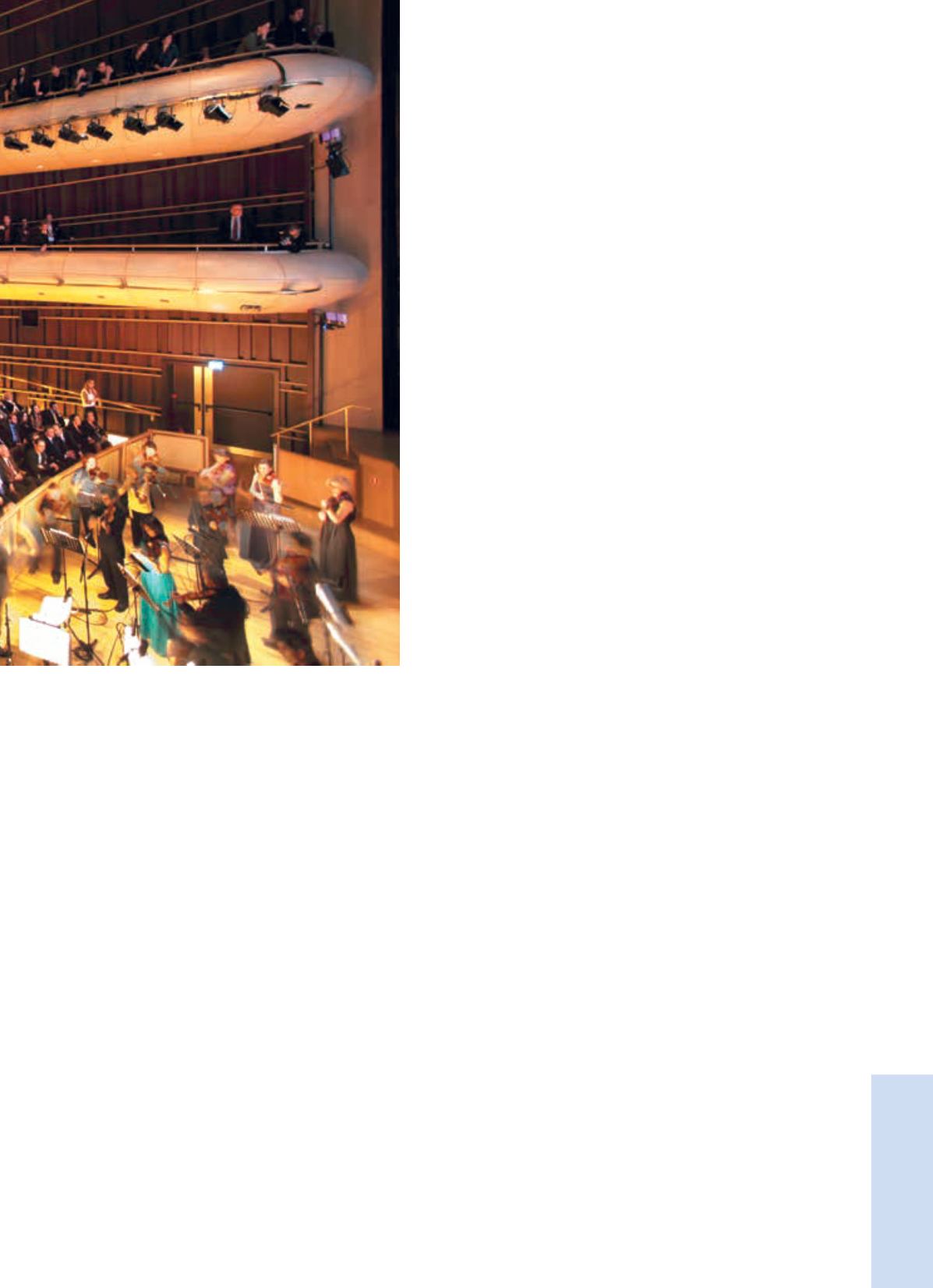
easily explore the Greek elements of Michelangelo,
Delacroix or Rothko, e.g. in the philosophy hidden
in each one’s art, the means they are using etc.
Is the state capable of assisting contemporary
Greek culture amidst a crisis?
It is true that in crisis periods the state’s resources
are channelled to other sectors, instead of culture.
However sad it may be, it should come as no sur-
prise. I am definitely not in a position to pass judg-
ment on the country’s cultural policy. I strongly
believe, though, that in crisis periods culture and edu-
cation are not luxuries, but necessities. When the
individuals’ dignity is compromised by destitution, art
provides them with the strength to cope. Art is part of
our quality of life and our environment. We cannot
only talk about the financial environment and the cri-
sis and the pollution of the natural environment,
ignoring, at the same time, our cultural environment.
Do you believe that subsidies are the ideal form
of state aid to culture?
They are definitely a major assistance for cultural
organizations, teams and artists, but the ideal
would be to include subsidies in a wider cultural pol-
icy framework, designed by a reliable agency.
However, I believe that, presently, cultural pluralism
can only be guaranteed by private sponsorships. If
they are part of a clear-cut cultural strategy pursued
by the sponsor, they are clearly aiding the creation
and supporting the promotion of culture in our coun-
try. Recently, there have been many initiatives of
this type, such as the Theocharakis, Laskaridis and
Kakoyannis Foundations, the Cycladic Art
Museum, the Bodosakis, Niarchos and Latsis
Foundations, the Foundation of the Hellenic World
(FWH) —this one with a different perspective—
even the Benakis Museum, which is more of a pri-
vate initiative. All these, in their own manner,
employ private resources for producing culture.
Their total budget may be larger than the amounts
that the Ministry of Culture can freely allocate to
similar projects. In regard to state sponsorships, it
depends on who decides about the allocation of the
funds. Up to now, this allocation had been based
either on safe choices (i.e. allocation to already
renowned artists) or on political criteria. We should
not forget, though, that France has been awarding
the famous Prix de Rome for almost 150 years now,
but few of the painters that received it are still
remembered. The same stands for other awards,
Salons, Biennales etc. On the contrary, the works of
art commissioned and purchased of by the Medici,
Scrovegni, Rockefellers, J. P. Morgans and so forth,
seem to be worth the while.
Are you cooperating with other cultural organi-
zations from the private and public sectors?
Cooperation exists, and will continue to exist,
because we believe in the power of team work.
Both the Onassis Foundation, and its affiliate
Foundation in New York, as well as the Centre, are
cooperating with cultural, and other, organizations
such as the Orchestra of the Colours and the
Kamerata, in order to achieve the desired results.
Above all, we are cooperating with other founda-
tions in Greece and certain overseas public entities
— such as universities. That said, I would like to
stress that the Ministry of Culture has always pro-
vided us with institutional support. And let me
underline the word institutional, because we have
never asked the state for any financial assistance.
Which is the Onassis Foundation’s criterion of
success in regard to the Cultural Centre?
As I told you, we have many ambitions and there-
fore we have many criteria of success. If I had to
choose one, this would be 100% attendance, with
an average age of 7 to 97, provided that all partici-
pants are there because they really wish to be a
part of the whole thing and to experience what we
are offering.
Trade with Greece
153


